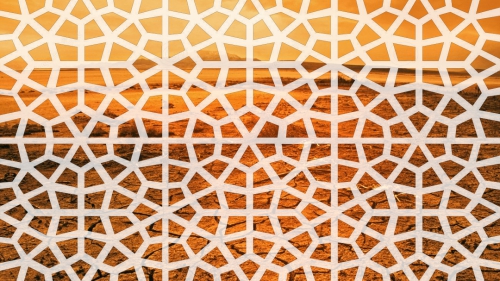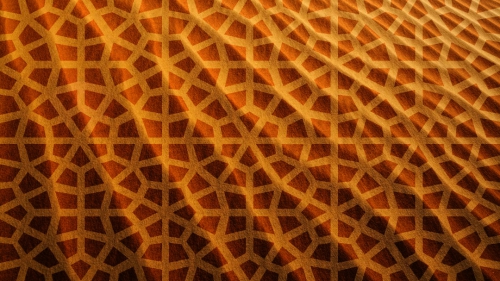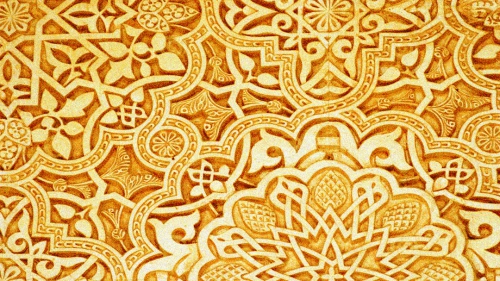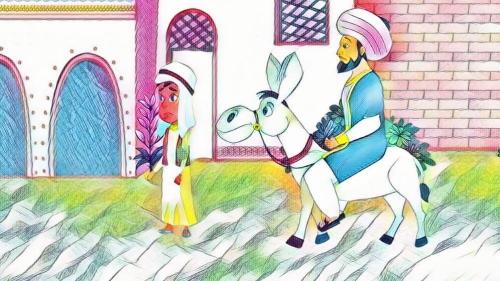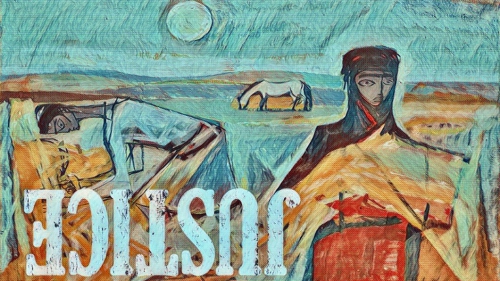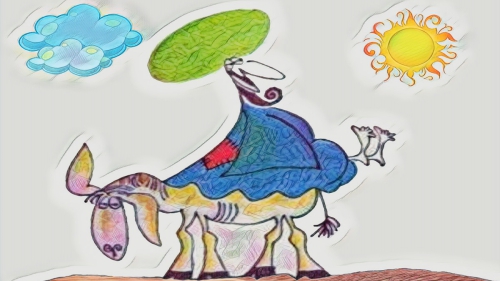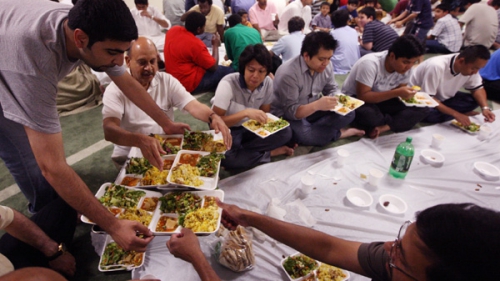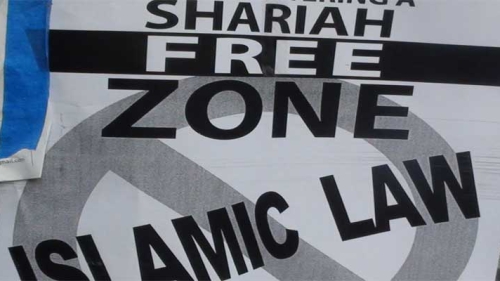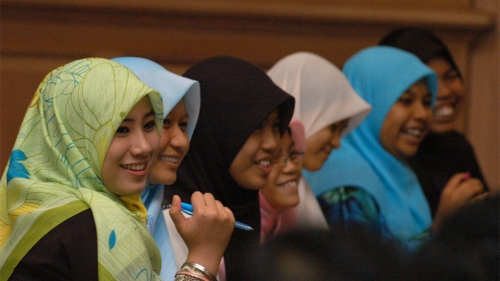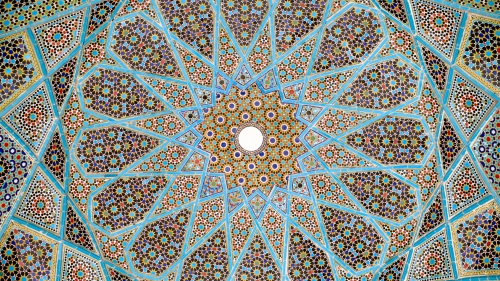Muslim Laughs at a Glance

Looking for a spouse online by Baba Ali
Muslim humorists are "standing up" to make their voices heard - and people are noticing. From a BBC documentary on Muslim comedy to a feature in The New York Times, Muslim comics are being counted among the new voices of Islam. Standing out from the crowd is Ali Ardekani, 33, an Iranian-American IT analyst. Ardekani, through his alter-ego Baba Ali, has gained a popular following on YouTube for his short videos which promote understanding between Muslims and the larger community. Ardekani is determined to make social change from his apartment in Los Angeles. His work is funny stuff...just don't call him a comedian.
A Fresh Start
Ardekani admits that he led a secular lifestyle for most of his life but always thought of his Muslim identity. A graduate of UCLA, Ardekani's main passion was filmmaking. Things changed for Ardekani after seeing a local film studio in operation. "I was invited to this interview back in 2006, and when I went there, the thing was literally at a warehouse, run by a bunch of guys with a couple of MAC computers. One of the guys had literally been there for only six weeks, and he was running the show. I was inspired. So I came back home, called up some friends, and said 'let's start making films for Muslims'". Ardekani combined his passion for film and his Muslim identity to create Ummah Films, a film company that makes halal or Islamically sensitive entertainment.
Fun Islam
Like other popular Muslim comedy groups, such as Allah made me Funny and Funny mentalists, the audience for Ummah films tends to be in the 15-25 years old demographic.
Ardekani uses his video blogs to revitalize the spirit of Muslim youth. "I'd go to the regular Masjid (mosque) and listen to the regular khutbah (lecture) and I look around and people are sleeping! These youth think they're not Muslim anymore because they don't like going to the khutbahs - can you blame them? If people are sleeping in the Masjids, how can that be teaching, if you're putting them to sleep in less than 10 minutes?-Islam has become disconnected from life".
In addition to reaching out to Muslims, Ardekani is also looking to change public perceptions. "I've always known the power of the media. It can change public opinion in a short round of time". Combating the representation of Muslims in film and television - the shady Arab man who always turns out to be a terrorist ready to blow himself up for the sake of Islam - is a difficult task. "Words like 'Allahu Akbar' or the sound of the azan (Islamic call to prayer) become scary in the minds of the viewers who start to make connections like that".
Baba Ali
Although "Baba Ali" has a sharp style, his character is not trying to be over the top. "I've always seen myself as just a regular person in front of a camera who is not scared to talk about sensitive issues."
"When you do taboo issues", says Ardekani, "it's the stuff that khatibs (speakers at Masjids) don't usually address. I get people talking and sometimes I get them angry - they hate this, they love that, but at least we have a discussion. Take something like cross-cultural marriage - there's no khutbah about that. Or the online matrimonial - no khutbah about that. I'm not necessarily doing da'wah (Islamic awareness) - we have enough of that. My stuff is reminders".
"I treat it like a business but it's not a business for me"
There is some money in film-making for these young Muslims who manage to win various competitions. Ardekani's "Muslim While Flying" won for "Best Comedy" in a Link TV competition, though the prize money is fairly limited. "Any money I get from this I put back into Ummah films. I buy things for the set so that at this point the videos you'll notice are clearer, the sound is better than when we started, the editing is better, the blog is designed well - it's like a real company. So that's where the money goes".
Audience Reception
Performing in a range of places, from Canada to Saudi Arabia, Ardekani's star is on the rise. Positive affirmations on his blog are numerous and "Baba Ali" is excited to be part of the new face of Muslims in North America. While personal recognition is rewarding, Ardekani is particularly amazed about the group of Muslim comedians, Tissa Hami, Ahmed Ahmed, Azhar Usman and Maysoon Zayid that will be featured in the upcoming PBS documentary "Stand Up: Muslim American Comics Come of Age" (2008).
Ardekani notes that "comedians look less threatening than Imam this or Imam that. They can take issues that are very sensitive and discuss them on stage, and it's okay". But when the laughs subside, Ardekani remarks that "the best way to pass on Islam is to be a practicing Muslim".
Ardekani has produced a short film called "Tomorrow Never Comes" produced by Ummahfilms.com.
Related Suggestions
One assumes for his own sake that instead of trying to be funny he tries to please his LORD.
This young man needs to understand one thing, in America people sleep in classrooms, on trains, in buses, while ahving a shave/haircut, at operas, while in House/Congress sessions, in Churches, in restaurants, on street corners, and even in bus stops while waiting for the bus....so to say people are being put to sleep during Khutbahs is an insult to Islam and to GOD fearing Muslims.
Shame on Islamicity for trying to mix humor and religion. Like chalk and cheese they don't mix.
Hell's fires burn, they don't tickle the funny bone!
I do like Ummahfilms. I think this guy is funny, but at the same time he speaks the truth. He moreorless focuses on things that face our communities. From racism, to the way we wear our hijabs. I love his, who hijacked my religion? The brother is good!! Although I am not in my twenties, I still appreciate this brother. Salams to all.
Fatimah















